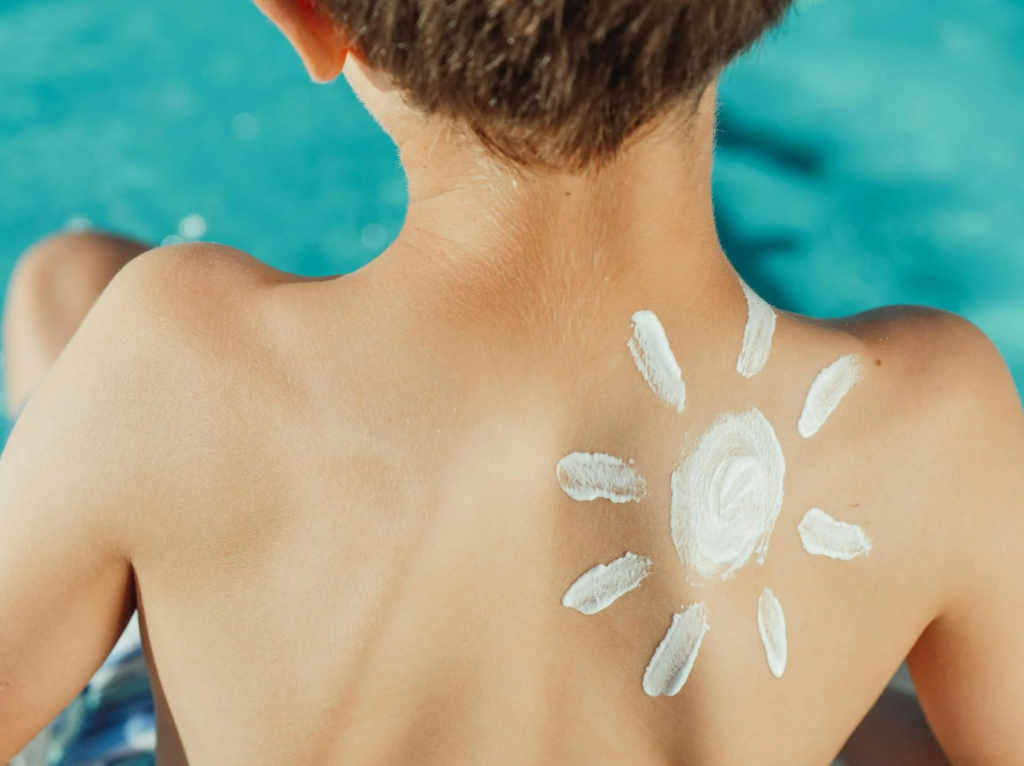
Introduction to Daily SPF Use
If you’re skipping SPF in your daily routine, you’re leaving your skin exposed to harmful UV rays that accelerate aging and increase the risk of skin cancer. The key to healthy skin? Daily SPF use — no exceptions.

Why Non-Greasy SPF Matters
Let’s face it, no one wants to walk around looking like a glazed donut. That greasy sheen some sunscreens leave behind is a major reason people skip them altogether. A non-greasy SPF can be the game-changer that makes sun protection easy and comfortable.
Impact on Skin Type
Heavy sunscreens can clog pores and trigger breakouts, especially if you have oily or combination skin. Non-greasy formulas absorb quickly and leave a matte or natural finish.
Makeup Compatibility
You want your sunscreen to sit well under makeup. A non-greasy SPF won’t pill or cause foundation to slide off — essential for a seamless base.
Key Ingredients to Look For
When selecting a daily SPF, what’s inside counts just as much as how it feels.
Broad-Spectrum Protection
Always look for “broad-spectrum” on the label. It means the product protects against both UVA (aging) and UVB (burning) rays.
Lightweight Formulations
Ingredients like niacinamide, hyaluronic acid, and oil-free emulsifiers can provide skincare benefits without the weight.
Different Types of SPF Products
There’s no one-size-fits-all. Pick the form that works best with your lifestyle and preferences.
Creams
Ideal for normal to dry skin. They often provide deep hydration but can feel heavier.
Gels
Best for oily skin. They absorb instantly and offer a refreshing finish.
Sprays
Convenient and fast, especially for reapplying on the go — just make sure you use enough.
Top Non-Greasy SPF Products in 2025
Here are the best performers for everyday use that won’t make your face a slick mess.
1. EltaMD UV Clear Broad-Spectrum SPF 46
Loved by dermatologists, this formula is packed with niacinamide and designed for sensitive, acne-prone skin.
2. La Roche-Posay Anthelios Ultra-Light SPF 60
With Cell-Ox Shield™ technology, this sunscreen provides high protection in a weightless fluid — perfect under makeup.
3. Supergoop! Unseen Sunscreen SPF 40
It’s invisible, weightless, and doubles as a primer. Ideal for all skin tones and types.
4. Neutrogena Hydro Boost Water Gel SPF 50
Combines SPF with hyaluronic acid to moisturize while protecting. Feels more like skincare than sunscreen.
5. Paula’s Choice Extra Care SPF 50
Great for oily skin, this matte-finish formula doesn’t clog pores and holds up well in humidity.
How to Choose the Right SPF for Your Skin Type
Skin isn’t one-size-fits-all — your sunscreen shouldn’t be either.
Oily and Acne-Prone Skin
Look for terms like “oil-free,” “matte finish,” and “non-comedogenic.” Gel-based formulas work best.
Dry or Sensitive Skin
Go for hydrating ingredients like ceramides, glycerin, and hyaluronic acid. Creams are usually better here.
Best Practices for Daily Application
You might have the right product, but technique matters too.
When and How Much to Apply
Apply SPF every morning, 15 minutes before sun exposure. Use about a nickel-sized amount for the face alone.
Reapplication Tips
Reapply every 2 hours if outdoors. Use stick or spray sunscreens for easy touch-ups without disturbing makeup.
Myths About Sunscreen Debunked
Let’s clear up a few things you’ve probably heard (and believed).
“SPF Is Only Needed in Summer”
UV rays don’t take a vacation — they’re present even on cloudy or cold days.
“Higher SPF Means Total Protection”
SPF 100 isn’t twice as effective as SPF 50. The increase is marginal. Reapplication is more important.
Environmentally Friendly SPF Options
Your sun protection doesn’t have to come at the planet’s expense.
Reef-Safe and Biodegradable Formulas
Avoid oxybenzone and octinoxate — harmful to coral reefs. Look for mineral-based sunscreens with zinc oxide or titanium dioxide.
Conclusion
Choosing the best SPF for daily use doesn’t have to feel like solving a skincare puzzle. By focusing on non-greasy, broad-spectrum, and skin-type-specific formulas, you can protect your skin without sacrificing comfort or aesthetics. Whether you wear makeup or not, there’s a lightweight SPF waiting to become your new favorite.
FAQs
1. Can I use body sunscreen on my face?
Not recommended. Facial skin is more sensitive, and body formulas are often too greasy or irritating.
2. What SPF level is best for daily use?
An SPF of 30 or higher is ideal for most people, offering sufficient protection without being too heavy.
3. Is mineral sunscreen better than chemical sunscreen?
Both are effective. Mineral SPF is great for sensitive skin, while chemical SPF tends to be lighter in texture.
4. Can I skip moisturizer if my sunscreen is hydrating?
Sometimes, yes — especially if your SPF includes ingredients like hyaluronic acid or glycerin.
5. Do darker skin tones need SPF too?
Absolutely. Melanin offers some natural protection, but not enough to prevent long-term sun damage or hyperpigmentation.






